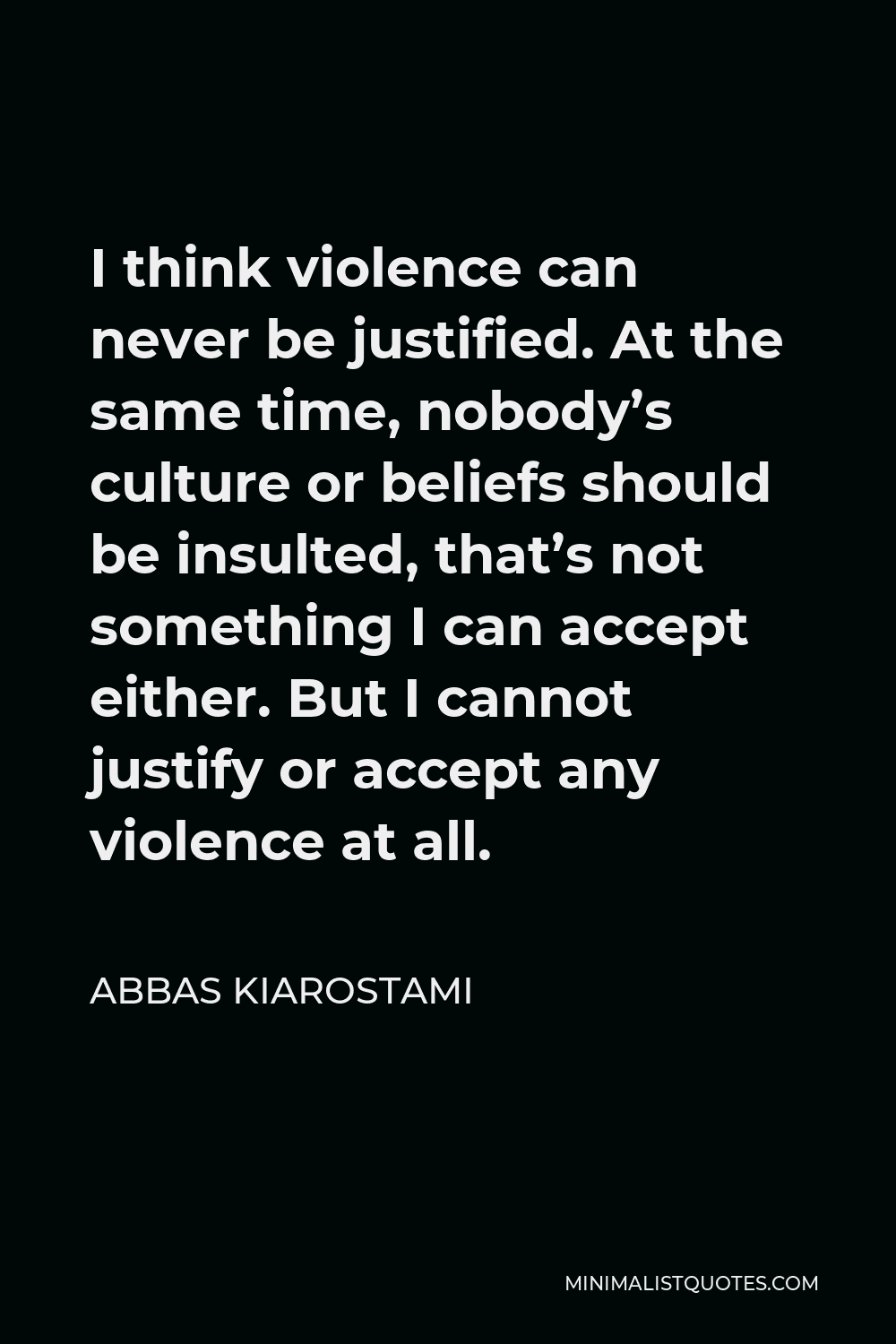I’m not sure that my films show the reality of life in Iran; we show different aspects of life. Iran is a very extensive and expansive place, and sometimes, even for us who live there, some of the realities are very hard to comprehend.
ABBAS KIAROSTAMII think violence can never be justified. At the same time, nobody’s culture or beliefs should be insulted, that’s not something I can accept either. But I cannot justify or accept any violence at all.
More Abbas Kiarostami Quotes
-





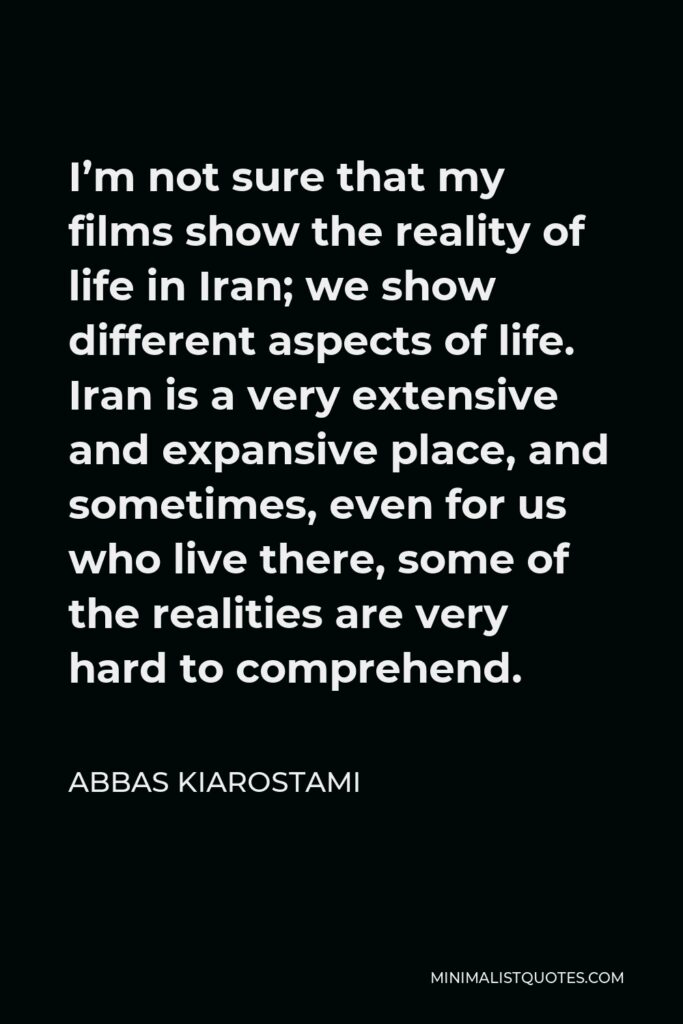

-





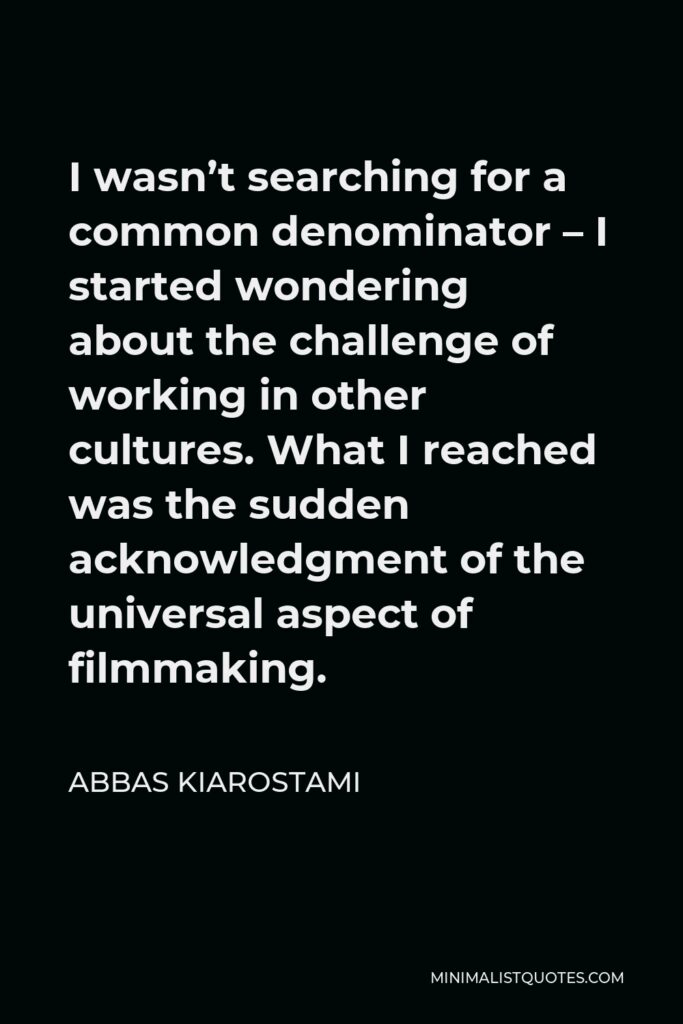

I wasn’t searching for a common denominator – I started wondering about the challenge of working in other cultures. What I reached was the sudden acknowledgment of the universal aspect of filmmaking.
ABBAS KIAROSTAMI -





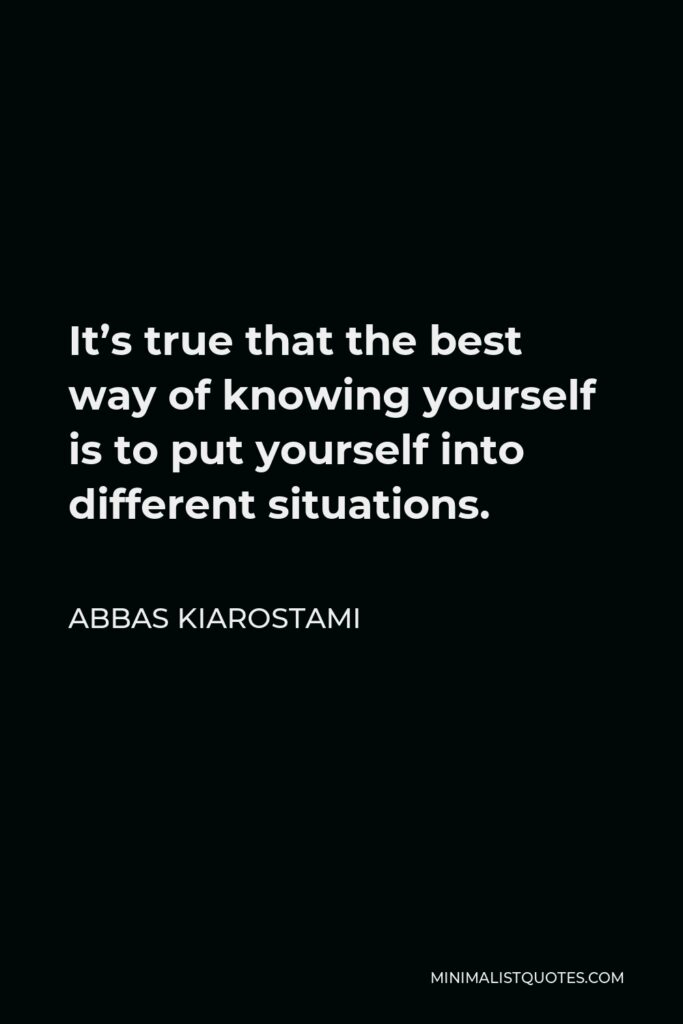

It’s true that the best way of knowing yourself is to put yourself into different situations.
ABBAS KIAROSTAMI -





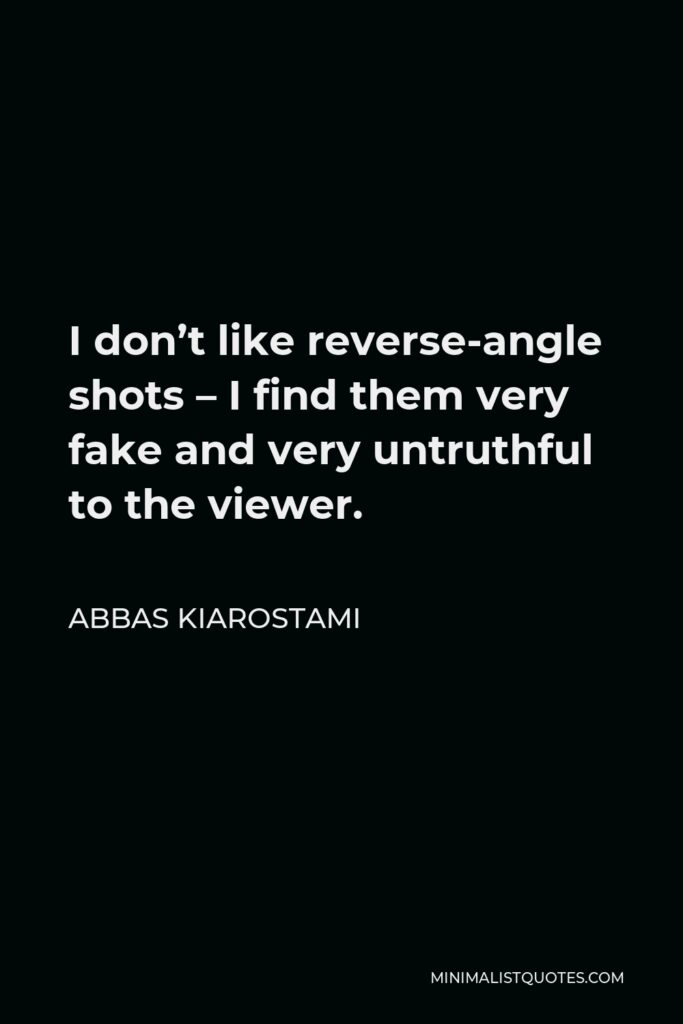

I don’t like reverse-angle shots – I find them very fake and very untruthful to the viewer.
ABBAS KIAROSTAMI -





![Abbas Kiarostami Quote - I saw this French woman, this English man in Italy. It was a film [Certified Copy] I knew well, but I had already seen it, and I was familiar with it, and I had no feeling of anxiety or responsibility toward it.](https://minimalistquotes.com/wp-content/uploads/2022/04/i-saw-this-french-woman-this-english-man-in-italy--683x1024.jpg)

I saw this French woman, this English man in Italy. It was a film [Certified Copy] I knew well, but I had already seen it, and I was familiar with it, and I had no feeling of anxiety or responsibility toward it.
ABBAS KIAROSTAMI -





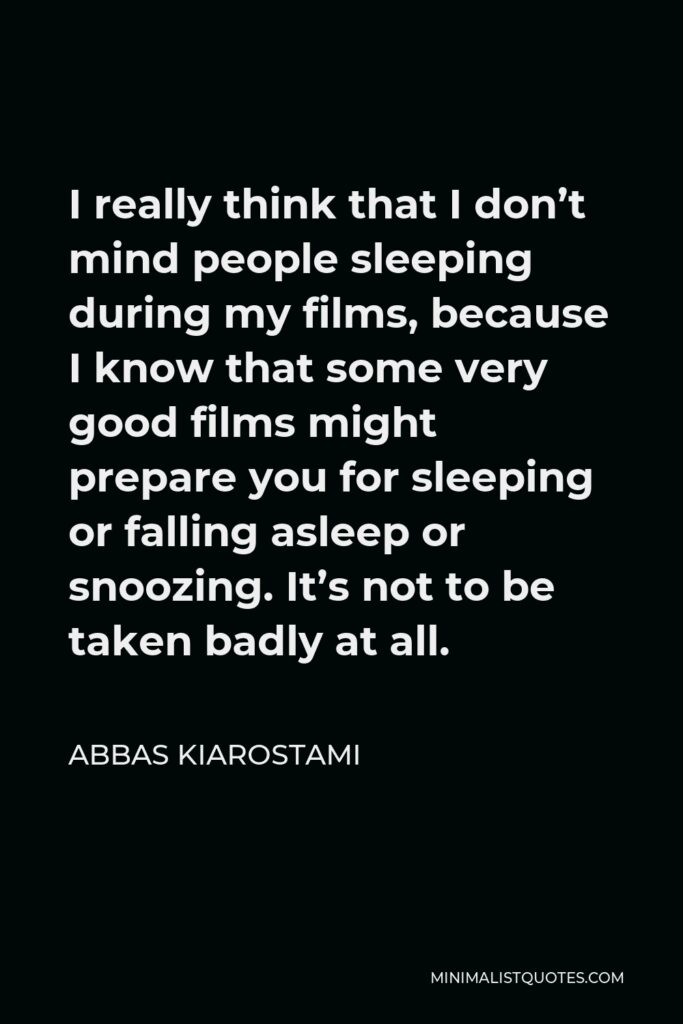

I really think that I don’t mind people sleeping during my films, because I know that some very good films might prepare you for sleeping or falling asleep or snoozing. It’s not to be taken badly at all.
ABBAS KIAROSTAMI -





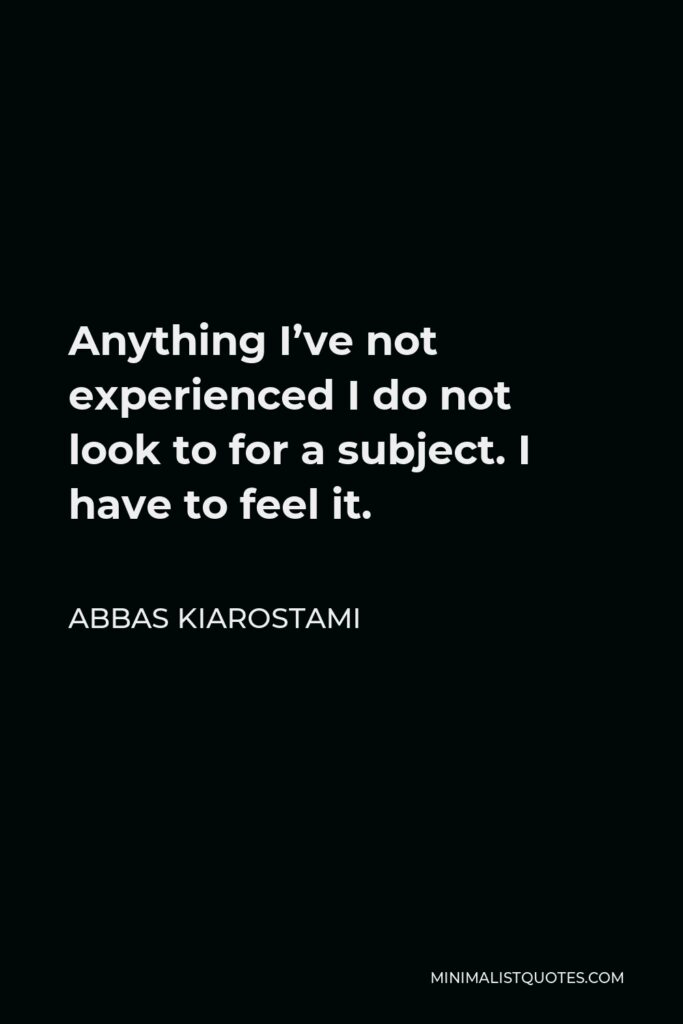

Anything I’ve not experienced I do not look to for a subject. I have to feel it.
ABBAS KIAROSTAMI -





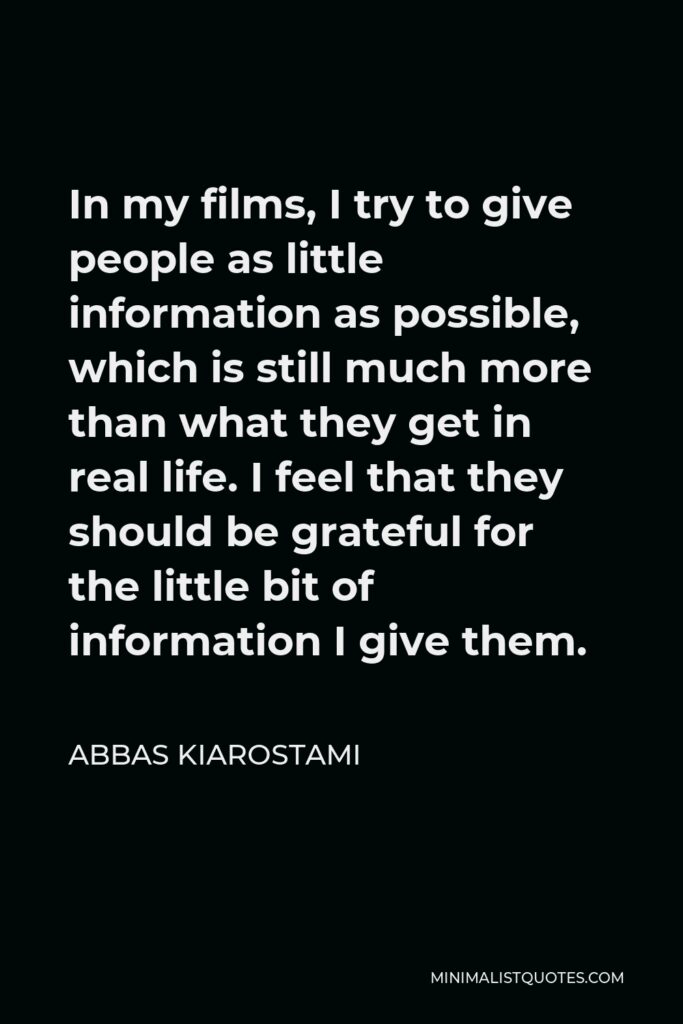

In my films, I try to give people as little information as possible, which is still much more than what they get in real life. I feel that they should be grateful for the little bit of information I give them.
ABBAS KIAROSTAMI -





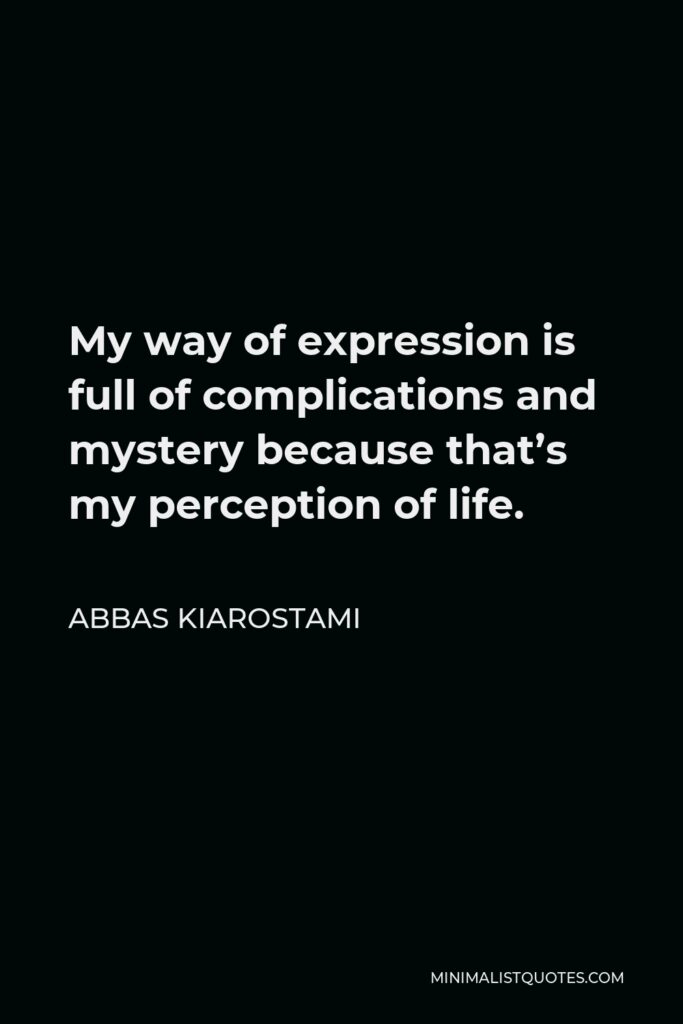

My way of expression is full of complications and mystery because that’s my perception of life.
ABBAS KIAROSTAMI -





![Abbas Kiarostami Quote - I didn’t just see myself as a film director here [in Life And Nothing More], but also as an observer of people who had been condemned to death.](https://minimalistquotes.com/wp-content/uploads/2022/04/i-didnt-just-see-myself-as-a-film-director-here-in-683x1024.jpg)

I didn’t just see myself as a film director here [in Life And Nothing More], but also as an observer of people who had been condemned to death.
ABBAS KIAROSTAMI -





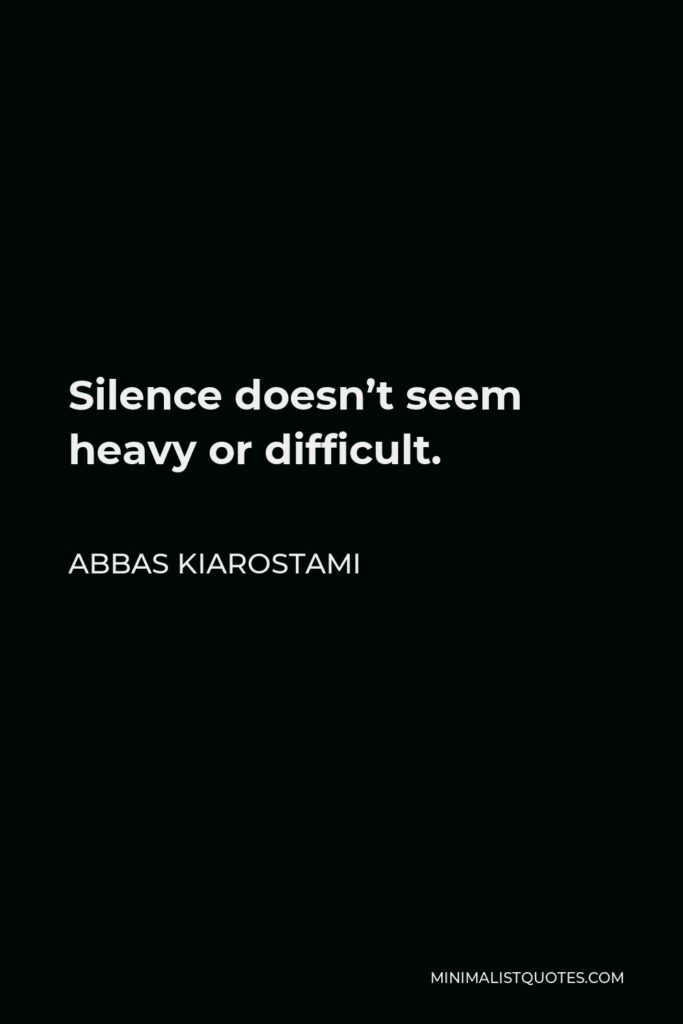

Silence doesn’t seem heavy or difficult.
ABBAS KIAROSTAMI -





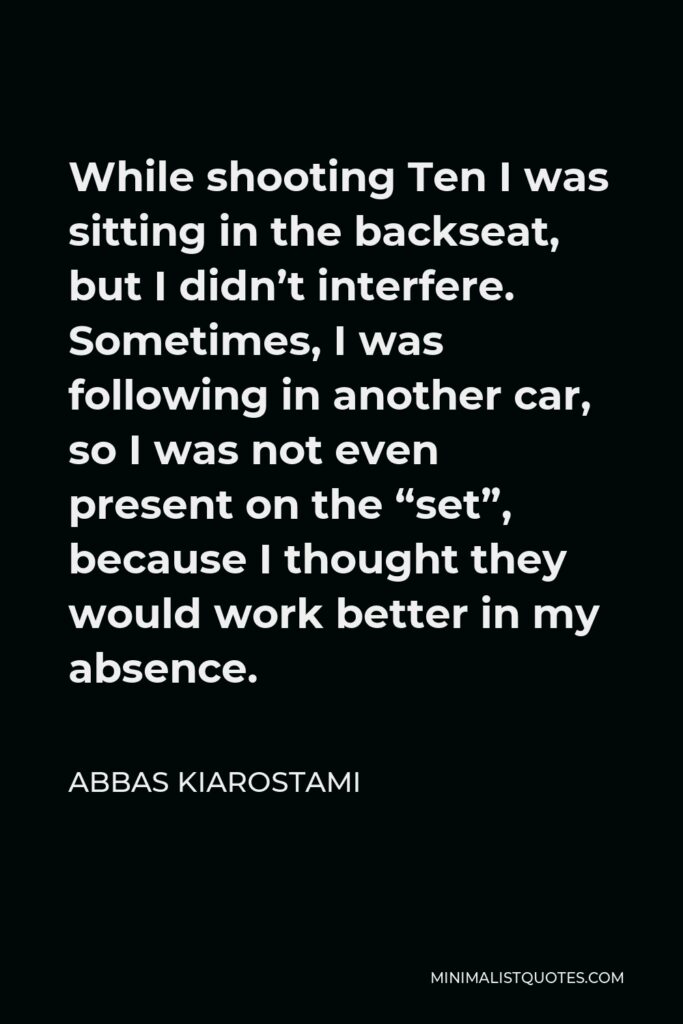

While shooting Ten I was sitting in the backseat, but I didn’t interfere. Sometimes, I was following in another car, so I was not even present on the “set”, because I thought they would work better in my absence.
ABBAS KIAROSTAMI -





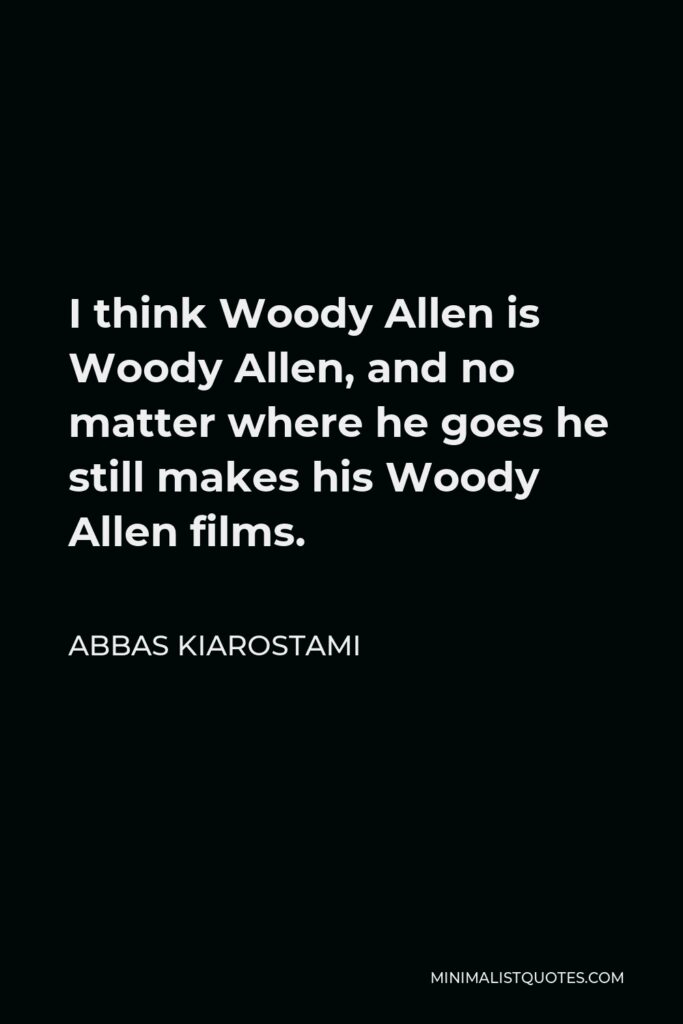

I think Woody Allen is Woody Allen, and no matter where he goes he still makes his Woody Allen films.
ABBAS KIAROSTAMI -





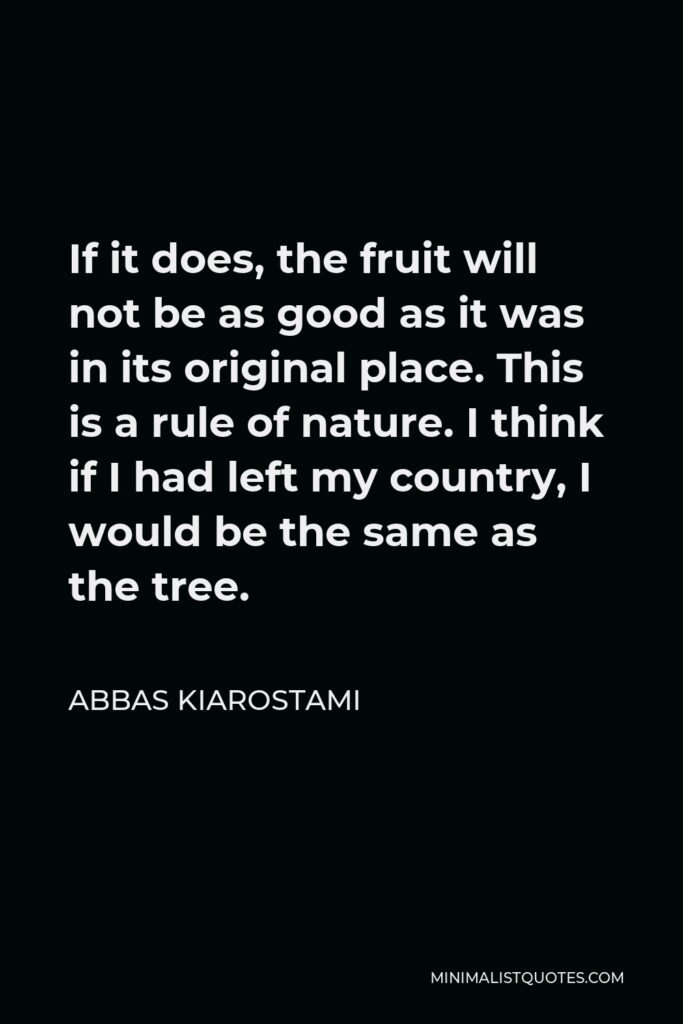

If it does, the fruit will not be as good as it was in its original place. This is a rule of nature. I think if I had left my country, I would be the same as the tree.
ABBAS KIAROSTAMI -





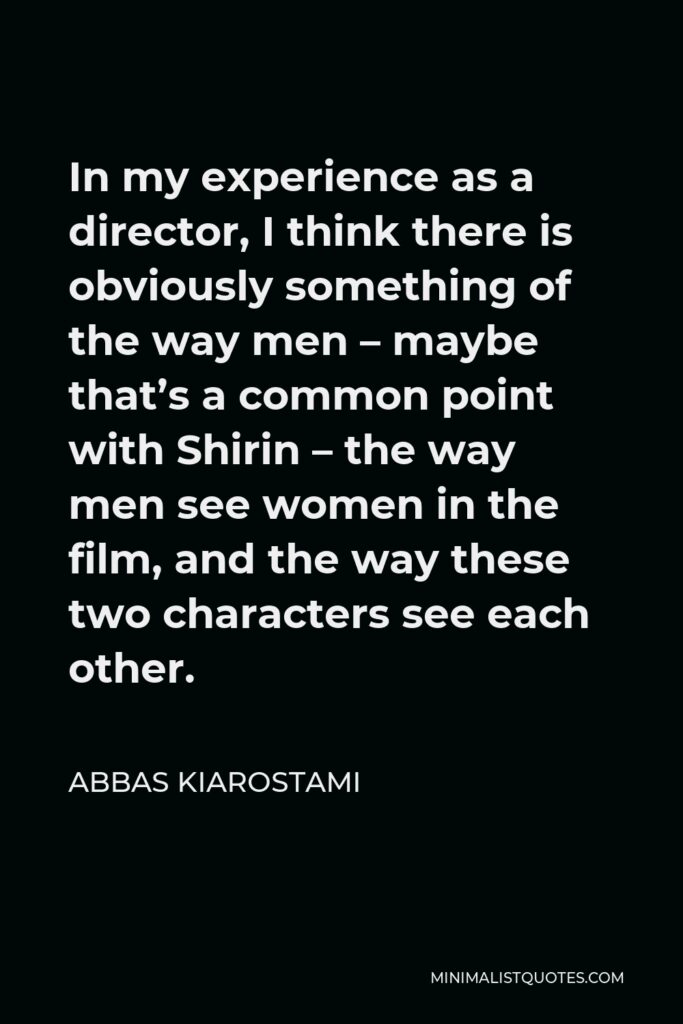

In my experience as a director, I think there is obviously something of the way men – maybe that’s a common point with Shirin – the way men see women in the film, and the way these two characters see each other.
ABBAS KIAROSTAMI -





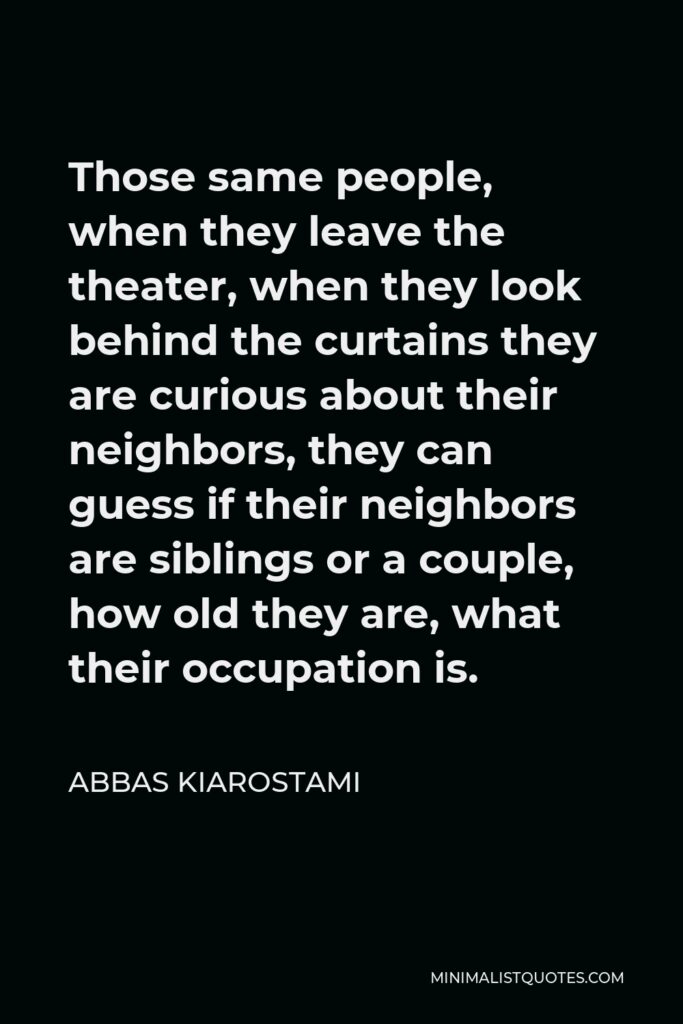

Those same people, when they leave the theater, when they look behind the curtains they are curious about their neighbors, they can guess if their neighbors are siblings or a couple, how old they are, what their occupation is.
ABBAS KIAROSTAMI
